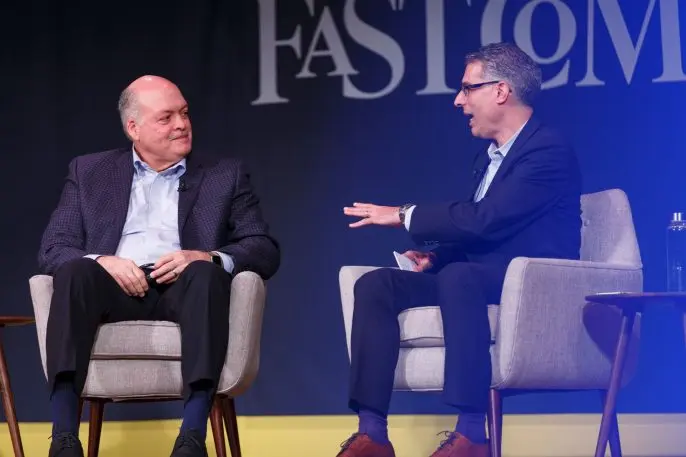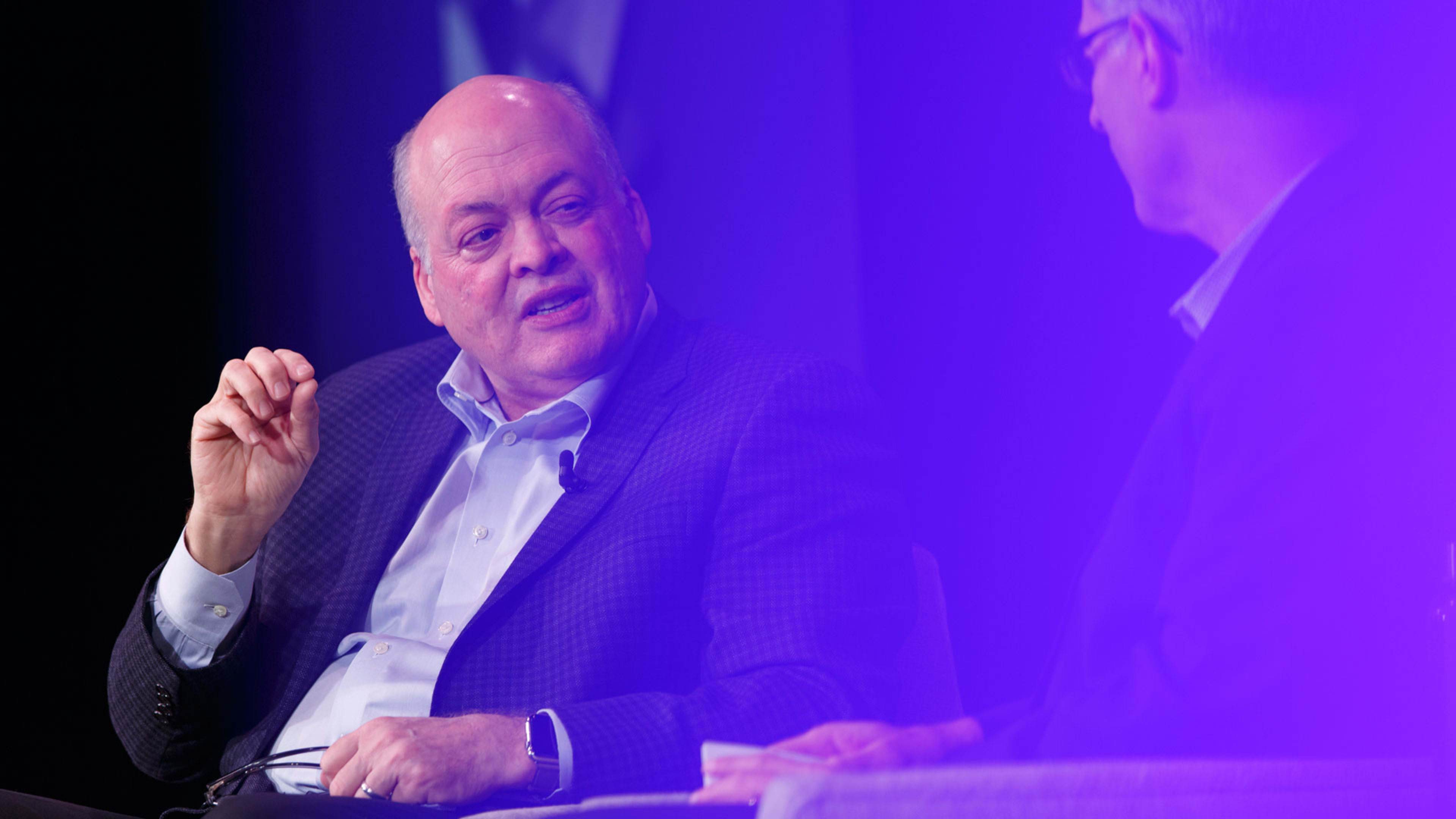The dream of exchanging friendly banter with your car à la K.I.T.T. from Knight Rider is still years away. But as smart-car technologies like GPS systems, connectivity, and automatic breaking become more commonplace, consumers will embrace smart cars with the same unwavering passion they expressed toward iPhones a decade ago.
That’s according to Jim Hackett, Ford Motor Co.’s recently installed chief executive, who spoke about the challenges of injecting creativity into the 114-year-old company at the Fast Company Innovation Festival Wednesday in New York.
Wild predictions about the future of automobiles are something of a rubber-stamp pastime these days, but Hackett indicated that the car industry may not see some of its bolder transformations, like fully autonomous vehicles, for many years to come. One thing he seemed pretty sure about, though, was that our idea of cars as passive objects—machines you step into and exert full control over—is going to be passé sooner than we think.
“There are things that today are virtuous that may not persist, and I can give you one—a dumb car,” Hackett said. “Once you experience the smartness that you have in your vehicle, there’s no way you’ll look back.”

A Slow Burn
Such technologies, Hackett said, will transform the driving experience, but will probably do so in small ways at first. As a case in point, he said Ford envisions a time when cars will be able to link up with their immediate surroundings to locate the nearest parking spots for drivers. Hackett believes a feature like that would not only be convenient, but it would help reduce fuel emissions by reducing the amount of time drivers spend idling in their vehicles and circling around blocks.
“You waste more time trying to find a parking place than you do being stuck in traffic,” said Hackett. “That’s because you’re trying to match the open parking place with where the car needs to go. We have a dream where they can actually tell each other that. The car and the parking spot are talking to each other. They find each other.”
Hackett took the reins of the U.S. automaker in May, abruptly replacing Mark Fields, who had been at the company since 1989. He previously oversaw Ford’s Smart Mobility Unit, a subsidiary created last year to incubate emerging technologies for connected and autonomous vehicles.
Still, Hackett proudly affirms that he’s “not a car guy,” and has had an eclectic career to say the least. He is credited with transforming the Michigan-based Steelcase from a modest furniture-making operation into a cutting-edge company with $3.1 billion in revenue last year. He also served as interim director of athletics for the University of Michigan.
Car guy or no, Hackett was adamant that the idea of car ownership as we know it isn’t going away anytime soon–ride-hailing services and the specter of self-driving cars be damned. Owning a car, Hackett said, gives consumers a sense of control, and that will continue to matter regardless of the disruptive changes that roll out in the future. “There’s a myth in the press that people are going to give up their vehicles,” he said.
Maybe so, but considering how much of the press is concentrated in traffic-plagued cities like New York and Los Angeles, it’s at least a myth tinged with wishful thinking.
Recognize your brand’s excellence by applying to this year’s Brands That Matter Awards before the early-rate deadline, May 3.
